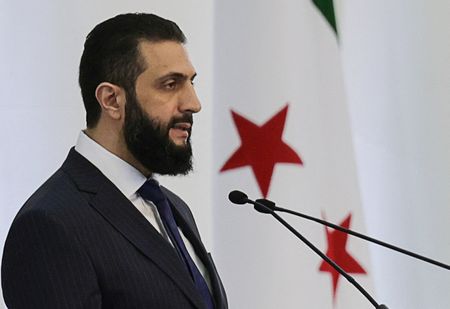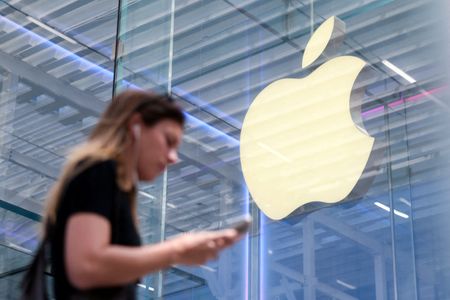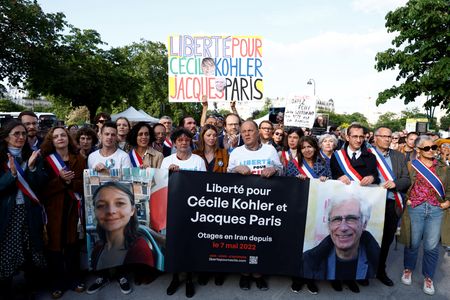By John Irish
PARIS (Reuters) – Syrian President Ahmed al-Sharaa will visit Paris on Wednesday, his first trip to Europe since the overthrow of Bashar al-Assad in December, as he seeks international support for his efforts to bring greater stability to his war-shattered country.
Sharaa, who will hold talks with French President Emmanuel Macron, received an exemption from the United Nations to travel to Paris as he remains on a terrorism sanctions list for his previous leadership of Islamist armed group Hayat Tahrir al-Sham (HTS), a former al Qaeda affiliate.
The two leaders will discuss how to ensure Syria’s sovereignty and security, the handling of minorities after recent attacks against Alawites and Druze, counterterrorism efforts against Islamic State militants and the coordination of aid and economic support, including an easing of sanctions, French officials said.
The visit marks a diplomatic boost for Sharaa from a Western power at a time when the United States is refusing to recognise any entity as the government of Syria and keeping sanctions in place.
“We are not writing a blank cheque and we will judge (him) on actions,” French Foreign Minister Jean-Noel Barrot told TF1 TV channel on Wednesday.
He added that Paris wanted to ensure that Syria focused on fighting impunity to curtail sectarian violence and its full engagement in tackling Islamic State militants.
“If Syria were to collapse today it would be like rolling out a red carpet for Islamic State,” Barrot said.
The Franco-Alawite Collective is holding a protest against Sharaa in central Paris on Wednesday afternoon.
The same group filed a legal complaint on April 11 to the Paris prosecutor, seen by Reuters, aimed at Sharaa and some of his ministers for genocide and crimes against humanity over the mass killings in March of Alawaites in the country’s coastal region.
CAUTIOUS RAPPROCHEMENT
France welcomed Assad’s fall and has increasingly fostered ties with Sharaa’s transitional authorities. Macron recently held a trilateral video meeting with Sharaa and Lebanon’s President Joseph Aoun as part of efforts to ease tensions on the border.
France last month appointed a charge d’affaires in Damascus with a small team of diplomats as a step towards fully reopening its embassy.
Paris believes it has a card to play in Syria, having cut ties with Assad in 2012 and having refused thereafter to restore ties with his government even after opposition fighters were badly defeated and confined to northern pockets of the country.
It traditionally backed a broadly secular exiled opposition and Kurdish forces in northeastern Syria, where it already has special forces.
Over the past months France played an intermediary role between Sharaa and the Kurds as the United States began reducing its presence and the new Syrian leader looked to bring the area back under centralised control from Damascus.
A French presidency official said Paris had been holding talks with the Americans on how to handle Washington’s withdrawal and how France could play a bigger role.
With the World Bank estimating reconstruction costs in Syria at more than $250 billion, Sharaa is in desperate need of sanctions relief to kickstart an economy battered by 14 years of civil war. During that period the U.S., the European Union and Britain imposed tough sanctions on the Assad government.
The EU has lifted some sanctions, while some others that target individuals and entities are due to expire on June 1.
Syria hopes the EU will not renew those measures. Their renewal needs consensus among all 27 member states, although the bloc could opt for a limited renewal or delist key institutions such as the Central Bank or other entities that are needed for economic recovery, including energy, infrastructure, finance.
(Reporting by John Irish; Editing by Gareth Jones and Alex Richardson)









